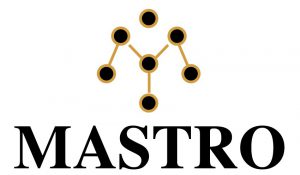
Η2020 MASTRO: Intelligent bulk MAterials for Smart TRanspOrt industries
Project ID: 760940
Funded under: NMBP-04-2017 – Architectured /Advanced material concepts for intelligent bulk material structures
MASTRO is a Research and Innovation action (RIA) project in the EU’s Framework Programme “Horizon 2020”. Τhe project started on 1st of January 2018, having a duration of 42 months. The aim of the project is to develop intelligent bulk materials for the transport sector based on novel concepts like self-sensing, self-deicing, self-curing, self-healing and self-protection methodologies to increase consumer safety, component life-span and performance while reducing maintenance and manufacturing costs. In order to implement this objective, the MASTRO project brings together a European Network of 16 highly specialized partners from different fields.
The functionality of the developed components will be demonstrated under relevant conditions at prototype level for the aerospace, automotive and transport networks. These developments will be supported by theoretical material models to capture the self-responsive functionalities. The outputs of the Project will consist of numerous applications in these sectors. The matrices addressed consist of lightweight polymer composites like glass/carbon fibre reinforced polymers and thermoplastic materials (including melt-spinning for textiles used in the transport sector) together with asphalt and concrete formulations incorporating electrical carbon-based conductive nanomaterials. These self-responsive functionalities are based on two physical phenomena: piezoresistivity and Joule effect. The aim of self-responsiveness properties can be summarized as follows:
- Self-sensing: to confer to the intelligent components the ability to monitor/store data about its own condition in terms of vibrations, defects, fatigue, creep and strain.
- Self-deicing: to avoid the ice layer formation or the loss of performance due to cold weather.
- Self-curing: to increase quality and durability while reducing manufacturing cost of the polymer composites and cement concrete formulations by improving the curing process step.
- Self-healing: to aid the repair of polymer composites and asphalt concrete formulations by healing those materials without the need of an external and expensive maintenance operation.
- Self-protection: to minimize the failure occurrence in case of electrostatic charge accumulation or lightning impacts by discharging the voltage through the smart component.
For more information visit H2020 website: https://www.mastro-h2020.eu/

